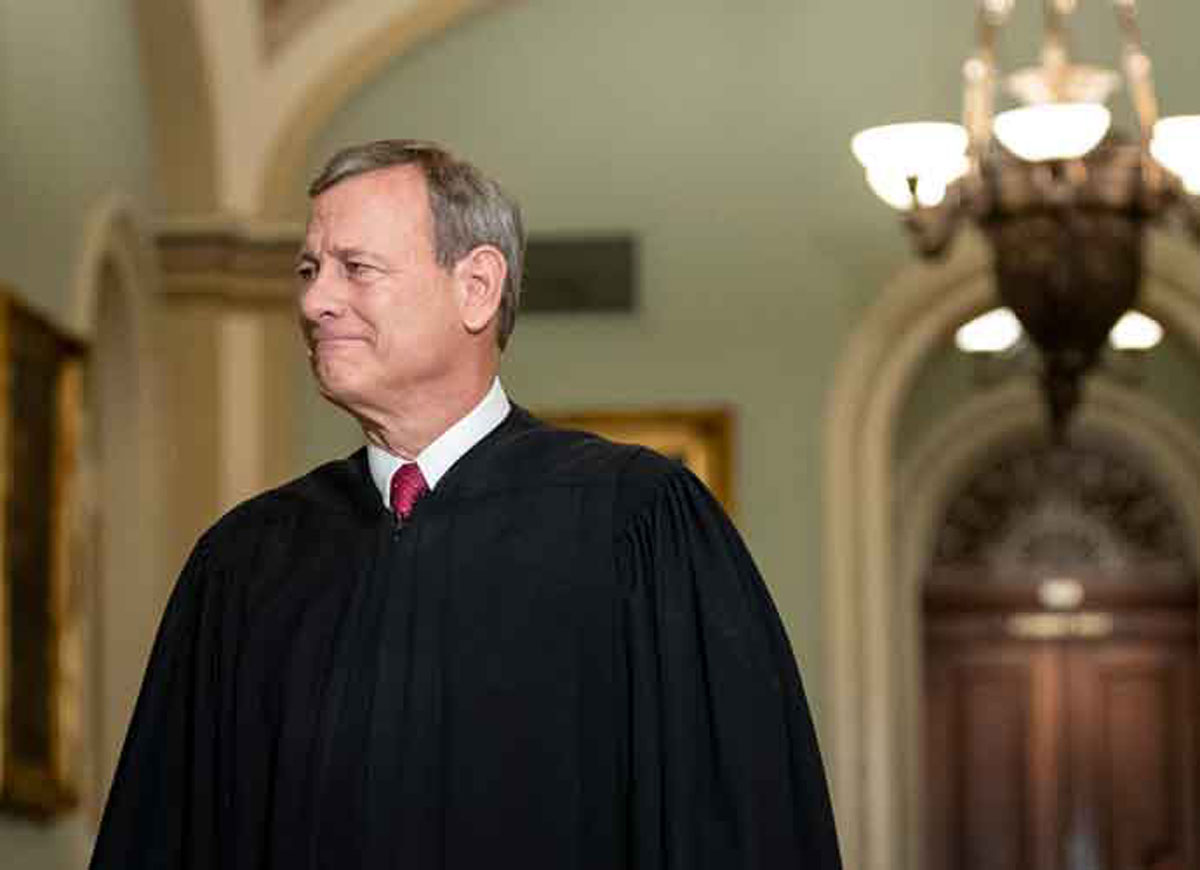

WASHINGTON, DC JANUARY 16: Supreme Court Chief Justice John Roberts arrives to the Senate chamber for impeachment proceedings at the U.S. Capitol on January 16, 2020 in Washington, DC. On Thursday, the House impeachment managers will read the articles of impeachment against President Trump in the Senate chamber and the chief justice of the Supreme Court and every senator will be sworn in. (Photo by Drew Angerer/Getty Images)
On Friday, the Supreme Court ruled that lower courts can no longer grant nationwide injunctions, allowing President Donald Trump’s executive order to end birthright citizenship to take effect.
The ruling has significantly limited the power of district court judges, thereby blocking their ability to issue national injunctions against federal government policies.
In a 6-3 vote, with all judges following ideological lines, the court ruled that, in most cases, judges can only rule on the parties involved in the lawsuit. To expand the protections to others, they must convert the lawsuit into a class action, which has its own process for challengers.
“The universal injunction was conspicuously nonexistent for most of our Nation’s history,” Justice Amy Coney Barrett wrote in the majority opinion.
Subscribe to our free weekly newsletter!
A week of political news in your in-box.
We find the news you need to know, so you don't have to.
This ruling comes following three separate lawsuits in which judges granted nationwide injunctions over Trump’s executive order seeking to end birthright citizenship. Even though the order conflicts with the 14th Amendment of the Constitution, which says that “all persons born or naturalized in the United States, and subject to the jurisdiction thereof, are citizens of the United States.”
This ruling does not address the constitutionality of the citizenship order, but the three justices who ruled in dissent stated that the president’s order is flatly illegal.
“The Court’s decision to permit the Executive to violate the Constitution with respect to anyone who has not yet sued is an existential threat to the rule of law,” Justice Ketanji Brown Jackson wrote.
While this ruling brings Trump closer to his goal of removing birthright citizenship as a right, it includes a powerful caveat. It allows nationwide injunctions to take effect if a state government files a lawsuit.
Barrett wrote that the court purposely did not rule on the issue of birthright citizenship to allow lower courts to debate it first.
California Gov. Gavin Newsom (D) is on a tour in South Carolina with the state's…
The Justice Department has launched a criminal investigation into former CIA Director John Brennan and…
Russia ramped up daily attacks against Ukraine to reach 1000 drones and missiles, with another…
A federal district judge issued a new nationwide block against President Donald Trump’s executive order…
A joint report by the Federal Bureau of Investigation (FBI) and the Department of Justice…
On Wednesday, President Donald Trump announced plans to impose a 50% tariff on Brazil, citing…